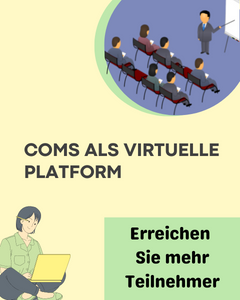Konferenzen > Mathematik > Graphentheorie und Kombinatorik
Wählen Sie ein Land aus
ALLE LÄNDER (10)
1
Regularity in Algebra, Combinatorics, and Geometry
19. Apr 2026 - 24. Apr 2026 • Banff, Alberta, Kanada
Eintrags-ID:
1668606
2
WAW 2026 — 21st Workshop on Modelling and Mining Networks
15. Jun 2026 - 19. Jun 2026 • Toronto, Ontario, Kanada
Eintrags-ID:
1685481
3
Cross-Community Collaborations in Combinatorics
21. Jun 2026 - 26. Jun 2026 • Banff, Alberta, Kanada
Eintrags-ID:
1668694
4
Workshop — SiMEGG: Structure in Matroids, Embedded Graphs and Graphs
29. Jun 2026 - 03. Jul 2026 • ICMS, Bayes Centre, Edinburgh , Großbritannien
Eintrags-ID:
1670113
5
G2T2 — Graphs and Groups, Tessellations and Transformations (G2T2), International Conference and PhD-master Summer School
12. Jul 2026 - 26. Jul 2026 • Hong Kong, China
Eintrags-ID:
1697313
6
Combinatorics and Geometry in Ioannina
02. Sep 2026 - 06. Sep 2026 • Ioannina, Griechenland
Eintrags-ID:
1624283
7
Arithmetic, L-functions, and Pseudorandomness
06. Sep 2026 - 11. Sep 2026 • Banff, Alberta, Kanada
Eintrags-ID:
1668792
8
Bridging Theoretical Discrete Math Advancements with Open Source Resource Development
27. Sep 2026 - 02. Okt 2026 • Banff, Alberta, Kanada
Eintrags-ID:
1668832
9
Higher Rank Graphs in Algebra, Geometry and C*-Algebras
01. Nov 2026 - 06. Nov 2026 • Banff, Alberta, Kanada
Eintrags-ID:
1668948
10
Evolving Random Structures and Interactions
06. Dez 2026 - 11. Dez 2026 • Banff, Alberta, Kanada
Eintrags-ID:
1669009
Conference-Service.com stellt der Öffentlichkeit ein Kalendarium wichtiger Konferenzen, Symposien und sonstiger Tagungen im wissenschaftlich-technischen Bereich zur Verfügung. Obwohl das Verzeichnis mit großer Sorgfalt zusammengestellt und ständig aktualisiert wird, weisen wir auf die Möglichkeit von Fehlern ausdrücklich hin. Bitte vergewissern Sie sich immer beim Veranstalter, bevor Sie über die Teilnahme oder Nichtteilnahme an einer Konferenz entscheiden.
Stand vom 18. Februar 2026



